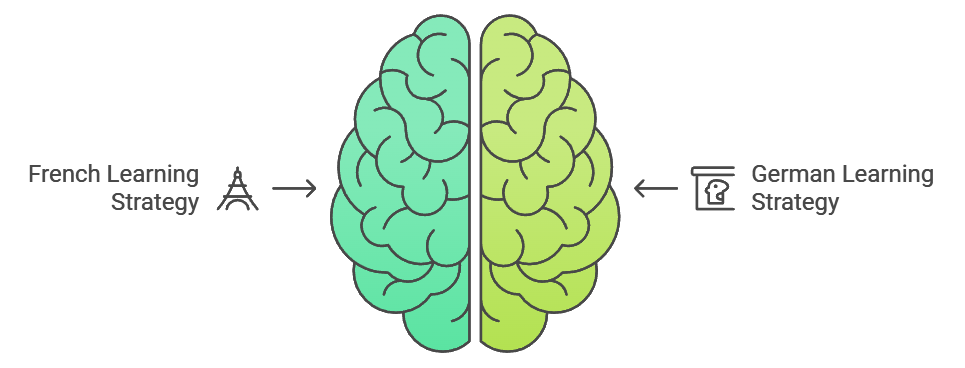Which is Easier to Learn: French or German?
Neither French nor German is inherently easier to learn – it depends on your native language, learning style, and goals. For English speakers, German often feels more familiar due to shared Germanic roots, while French offers more recognizable vocabulary through Latin influences. Let’s break down exactly what makes each language unique in terms of learning difficulty.
Key Takeaways
- German grammar is more complex, but pronunciation is more consistent
- French has simpler grammar but challenging pronunciation rules
- German typically takes 10-15% more study hours to reach proficiency
- Both languages offer similar salary increases (15-25%)
- Success depends more on learning approach than inherent difficulty
Language Family Comparison
English speakers have a unique advantage when learning either language. German shares grammar patterns with English, while French contributes about 45% of English vocabulary. Think of it like having distant cousins – one who looks like you (German) and one who talks like you (French).
Germanic Connection The German-English relationship shows in sentence structure:
- English: I have eaten the apple
- German: Ich habe den Apfel gegessen
- French: J’ai mangé la pomme
Difficulty Assessment
Let’s look at what makes each language challenging:
| Feature | French | German |
|---|---|---|
| Grammar Cases | None | 4 cases |
| Genders | 2 (m/f) | 3 (m/f/n) |
| Pronunciation Rules | Complex | Consistent |
| Verb Conjugations | Regular patterns | More exceptions |
| Word Order | Fixed | Flexible |
Time Investment Reality Check
Here’s what research shows about reaching different proficiency levels:
| CEFR Level | French Hours | German Hours | Milestone |
|---|---|---|---|
| A1 | 60-80 | 75-100 | Basic Communication |
| B1 | 360-400 | 400-450 | Workplace Functional |
| C1 | 700-800 | 750-900 | Professional Fluency |
Career and Economic Benefits
Did you know that learning either language can significantly boost your earning potential? Here’s what the data shows:
Salary Impact
- French speakers: 15-20% average increase
- German speakers: 20-25% average increase
High-Demand Industries
- French: Fashion, Luxury Goods, Tourism
- German: Engineering, Automotive, Technology
Modern Learning Approaches
Want to know the secret to faster learning? Here’s what works best for each language:
French Learning Strategy
- Focus on pronunciation first
- Listen to native content daily
- Practice speaking from day one
- Use spaced repetition for vocabulary
German Learning Strategy
- Master the cases early
- Learn compound words systematically
- Focus on verb position rules
- Use language learning apps daily

Digital Tools Success Rates
Recent studies show these success rates with popular apps:
- Duolingo: 53% retention for French, 48% for German
- Babbel: 65% retention for both languages
- Busuu: 60% retention for French, 57% for German
Making Your Choice
Ask yourself these questions:
- Do you prefer logical rules (German) or intuitive learning (French)?
- Which job markets interest you most?
- How much time can you dedicate daily?
- What’s your primary motivation?
Success Indicators
- Regular practice (minimum 30 minutes daily)
- Immersion opportunities
- Clear learning goals
- Access to native speakers
Getting Started Tips
Ready to begin? Here’s your first week plan:
- Day 1-2: Basic greetings and numbers
- Day 3-4: Simple phrases and pronunciation
- Day 5-7: Core grammar concepts and common vocabulary
Remember, the “easier” language is the one you’re more motivated to learn. Both French and German open doors to rich cultures, professional opportunities, and cognitive benefits. The key is choosing the language that aligns with your personal goals and learning style.
Pro Tip: Start with a 30-day trial of both languages. Spend two weeks with each, then decide which feels more natural to you. This hands-on approach often reveals your better fit, regardless of theoretical difficulty levels.
The truth is, your success depends more on consistency and motivation than on which language you choose. Pick the one that excites you most, and you’re already halfway to success.
